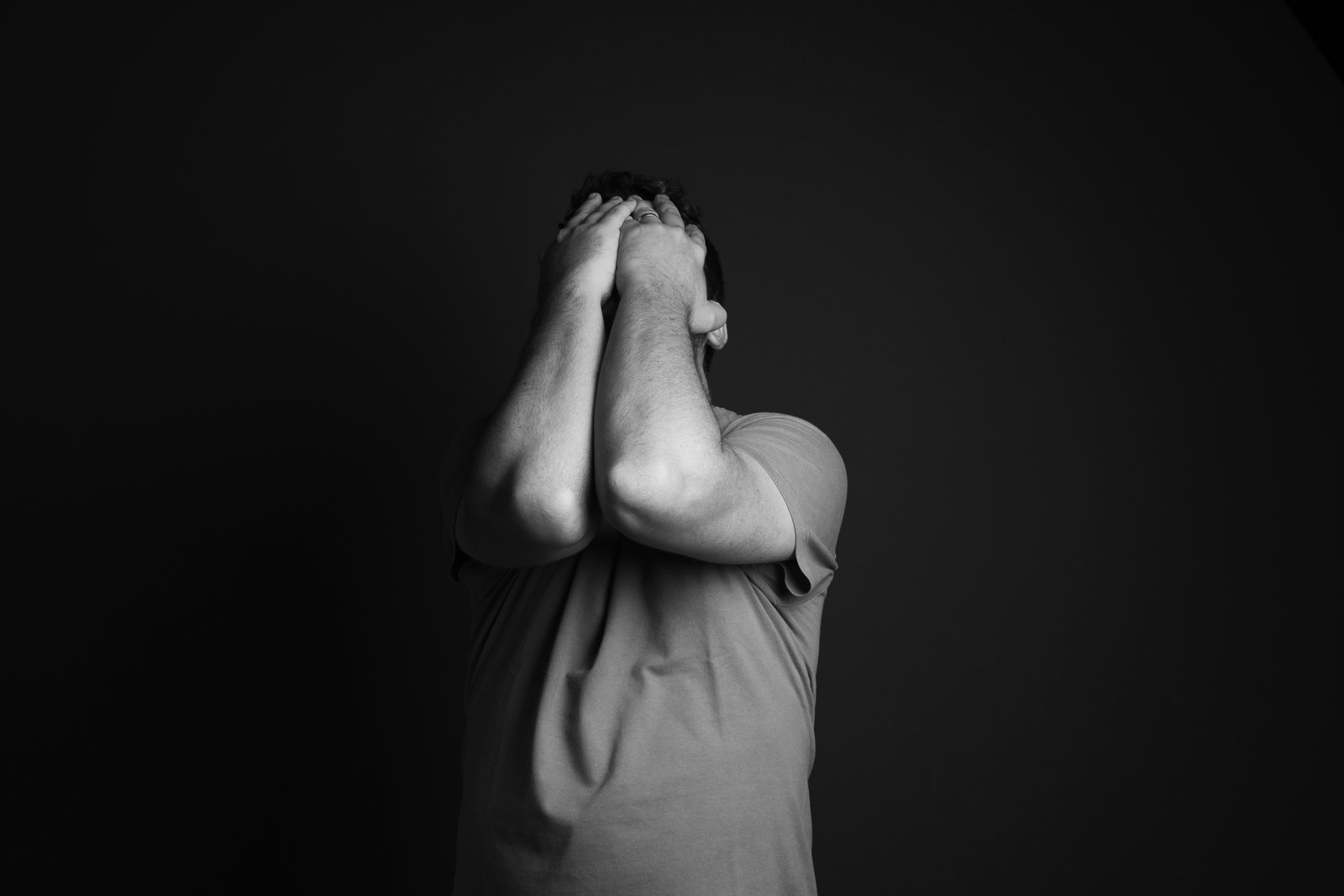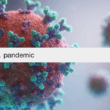
Are you sick of always feeling anxious, restless, and overburdened? If so, you could be one of the millions of people who suffer from generalized anxiety disorder (GAD) who live on the globe today. GAD is a typical mental illness that can greatly influence your daily life, making it hard to focus, sleep, and enjoy the things you used to love. But don’t worry; there is help available. We will take you on a journey to understand GAD better and examine the most potent therapies available in this manual. We will arm you with the knowledge and resources to navigate the path to relief, from counseling and medicine to lifestyle adjustments and self-care practices. So let’s start this amazing adventure together if you’re ready for understanding and treating general anxiety disorder and recover your life.
What is Generalized Anxiety Disorder (GAD)?
A chronic illness known as a generalized anxiety disorder (GAD) is characterized by excessive and uncontrollable worry or anxiety about many different elements of life. The fear that people with GAD experience lasts and impairs their capacity to operate on a daily basis, in contrast to regular anxieties that can be addressed and go away with time. People with GAD frequently struggle to restrain their worried thoughts, resulting in ongoing anxiety and restlessness.
GAD affects men and women of various ages, with symptoms typically appearing in childhood or adolescence. 6.8 million adults, or around 3.1% of the population, are thought to be affected by GAD in the United States alone. However, the true number of people with GAD is probably much higher due to underreporting and misdiagnosis.
Although the cause of GAD is unknown, it is thought to result from genetic, environmental, and psychological factors. According to research, people with GAD are likelier to have a family history of anxiety disorders. Stressful life events, long-term medical disorders, and chemical imbalances in the brain may also influence the onset of GAD.
Signs and Symptoms of GAD
The symptoms of generalized anxiety disorder can take many forms, including behavioral, emotional, and physical. Although everyone occasionally feels anxious, those with GAD show excessive worry disproportionate to the current situation. GAD symptoms and indicators include, among others:
- Excessive Worry: GAD sufferers frequently struggle to restrain their anxious thoughts. They could worry excessively compared to the actual threat of mundane issues like work, relationships, health, and finances.
- Restlessness: People with GAD could feel restless or “on edge” most of the time. They could struggle to unwind, remain motionless, or achieve peace of mind.
- Fatigue: Anxiety can be physically and mentally draining, which can result in feelings of exhaustion and low energy.
- Difficulty Concentrating: GAD can make it difficult for someone to focus and concentrate on tasks. They could be easily distracted or struggle with memory.
- Irritability: Anxiety can result in agitation and a quick temper. GAD sufferers could feel on edge and be more likely to get angry or frustrated.
- Muscle Tension: GAD can result in muscle tension, which can produce headaches, aches throughout the body, and a general sensation of physical discomfort.
The signs of GAD can differ from person to person and might evolve over time; it is crucial to note. It is essential to seek professional assistance if you think you or someone you know may have GAD to have a proper diagnosis and course of therapy.
Understanding the Causes of GAD
It is still unclear exactly what causes generalized anxiety disorder. The development of it, however, may be influenced by a mix of genetic, environmental, and psychological variables, according to the study.
Genetics: Research has indicated that people with a family history of anxiety disorders, such as GAD, are likelier to experience the condition. This shows that particular genes may contribute to a person’s susceptibility to anxiety disorders.
Brain Chemistry: Anxiety disorders have been associated with imbalances in brain chemicals like serotonin and gamma-aminobutyric acid (GABA). These substances control the body’s reaction to stress, mood, and emotions. The emergence of GAD may be influenced by an unbalance in these neurotransmitters.
Environmental Factors: Traumatic Life events, such as abuse, neglect, or losing a loved one, can raise the likelihood of getting GAD. Anxiety disorders can arise due to continuing stress, significant life changes, and chronic exposure to stressful events.
Personality factors that may raise the chance of getting a GAD include being extremely self-critical, having the propensity to overanalyze, or being perfectionistic. These characteristics could make people more sensitive to stress and more likely to worry excessively.
It’s crucial to remember that not everyone with these risk factors will get GAD, even if they may help the illness develop. GAD is a complicated disorder, and, likely, a number of different elements work together to impact how it develops.
Diagnosing Generalized Anxiety Disorder
Diagnosing a generalized anxiety disorder requires thoroughly examining a person’s symptoms, medical background, and psychological evaluation. Speaking with a licensed mental health expert, like a psychiatrist or psychologist, is crucial for a precise diagnosis.
The mental health professional doing the assessment will elicit information regarding the type and length of the anxiety symptoms, any triggers or stressors, and the effect the symptoms have on day-to-day activities. To rule out any underlying medical disorders that might be causing or exacerbating the anxiety symptoms, they may also perform a physical examination and request additional tests.
The Diagnostic and Statistical Manual of Mental Disorders, Fifth Edition (DSM-5) lists the following as criteria for the diagnosis of generalized anxiety disorder:
- Excessive stress and anxiety about numerous occasions or activities that have persisted for at least six months on a daily basis.
- Having trouble managing your worry?
- At least three of the following symptoms are linked to concern and anxiety:
- Anxiety or a sensation of restlessness.
- Low energy or fatigue.
- Trouble focusing or mental disorientation.
- Intolerability.
- Tense muscles.
- Sleep disorders include trouble getting asleep, staying asleep, or experiencing restless, uncomfortable sleep.
If someone is found to have GAD, a diagnosis will be given, and suitable treatment choices will be reviewed. A professional evaluation is required to identify the underlying cause of anxiety symptoms; thus, it’s crucial to remember that self-diagnosis is not advised.
Common Treatment Options for GAD
The symptoms of generalized anxiety disorder can be managed and overcome, and several successful treatment methods are available. GAD is typically treated with counseling, medication, dietary adjustments, and self-care routines.
For GAD, use cognitive behavioral therapy (CBT).
The widely accepted and scientifically supported cognitive behavioral therapy (CBT) has successfully treated GAD. The main goal of CBT for GAD is to recognize and alter the harmful thought patterns and beliefs that fuel worry. It provides individuals with useful methods to regulate their anxiety symptoms and aids in developing more adaptive coping mechanisms.
In CBT sessions, patients work with a qualified therapist to recognize and alter problematic thought patterns, gain efficient problem-solving abilities, and pick up anxiety-reduction coping mechanisms. Depending on the severity of the symptoms and the person’s development, CBT often entails weekly sessions spread out over a period of several months.
Medicines for GAD
The symptoms of generalized anxiety disorder may occasionally be treated with medication. GAD is frequently treated with antidepressants such as selective serotonin reuptake inhibitors (SSRIs) and serotonin-norepinephrine reuptake inhibitors (SNRIs). These drugs function by raising the concentrations of specific neurotransmitters in the brain, which can help control mood and lessen anxiety.
Diazepam and alprazolam are two examples of benzodiazepines that may be administered to treat severe anxiety symptoms temporarily. However, they are often not advised for long-term use because of the possibility of reliance and negative effects.
It is crucial to remember that a licensed healthcare practitioner should always prescribe and oversee the use of drugs. The best drug and dose will be chosen after they assess the individual’s unique demands.
Modifying Your Lifestyle to Control GAD
Along with treatment and medication, several lifestyle modifications can assist people in controlling their anxiety symptoms and enhancing their general well-being. Here are some tactics that could be useful:
- Regular Exercise: Physical activity on a regular basis can help lower anxiety and elevate mood. Endorphins, the brain’s natural mood-enhancing substances, are released during exercise.
- Healthy Diet: A well-balanced diet with a variety of fruits, vegetables, whole grains, lean meats, and healthy fats can promote both general physical and mental health. It’s also advised to refrain from drinking too much alcohol and coffee because these can worsen anxiety symptoms.
- Adequate Sleep: Putting proper sleep hygiene first is essential for people with GAD. A regular sleep schedule, a relaxing nighttime routine, and a cozy sleeping environment can all aid in promoting restful sleep.
- Stress Reduction Strategies: Developing a stress reduction strategy, such as deep breathing exercises, meditation, yoga, or mindfulness, can help lower anxiety and encourage relaxation.
- Limiting Exposure to Triggers: Recognizing and staying away from triggers exacerbating anxiety symptoms can be beneficial. Setting boundaries, using time wisely, and participating in enjoyable activities that encourage relaxation are examples of how to do this.
Alternative Therapies for GAD
Alternative therapies can offer people with generalized anxiety disorder more alleviation than conventional therapy methods. Although there may not be a lot of scientific data to back up these therapies, some people find them helpful in controlling their anxiety symptoms. Before trying alternative therapies, speaking with a healthcare provider is crucial. Alternative therapy that people with GAD could think about include:
- Acupuncture: Acupuncture entails** inserting tiny needles into predetermined bodily locations. It is thought to help relaxation and restore the flow of energy.
- Herbal Remedies: A number of plants, including chamomile, lavender, and passionflower, are thought to have relaxing effects and may lessen the symptoms of anxiety. Before utilizing herbal medicines, speaking with a healthcare provider is crucial because they may interact with prescription drugs or have unintended adverse effects.
- Massage therapy: Massage therapy helps ease stress, ease muscle tension, and encourage relaxation. It could offer momentary relief from the signs of anxiousness.
- Aromatherapy: Using essential oils in aromatherapy, such as lavender or bergamot, can aid in promoting relaxation and lowering tension. Essential oils can be utilized topically, aromatically, or in diffusers.
While these alternative therapies may offer some relief from GAD, it’s crucial to remember that they should only be used with other treatments, such as counseling and medication.
Support Groups and Resources for Individuals with GAD
Living with generalized anxiety disorder can be difficult, so getting help from people who understand what you’re going through is important. Support groups, both in-person and online, can offer a secure setting for sharing experiences, learning coping mechanisms, and getting support from those traveling a similar path.
People with GAD have access to a variety of options in addition to support groups. Many resources, such as books, websites, podcasts, and smartphone apps, are available for managing anxiety. The Anxiety and Depression Association of America (ADAA) and the National Institute of Mental Health (NIMH) are trustworthy sources.
– Mind.org
Calm and Headspace are two apps.
Remember that asking for help shows strength and that you don’t have to deal with anxiety alone. To assist you in navigating your path to relief and recovery, speak with mental health specialists, join a support group, and take advantage of the available services.
Frequently Asked Questions
Are there any self-help strategies for managing GAD?
Yes, several self-help strategies can help manage GAD symptoms. These include practicing relaxation techniques (such as deep breathing or meditation), exercising regularly, getting enough sleep, maintaining a healthy diet, and avoiding substances like caffeine and alcohol.
Are there any support groups for people with GAD?
Yes, support groups can be helpful for individuals with GAD. These groups provide a supportive environment where individuals can share their experiences, learn coping strategies, and receive encouragement from others who understand what they are going through.
Can GAD coexist with other mental health conditions?
Yes, it is common for GAD to coexist with other mental health conditions such as depression, panic disorder, or social anxiety disorder. This is known as comorbidity, and treatment plans are tailored to address all the conditions present.
How can I support someone with GAD?
You can support someone with GAD by offering understanding and empathy, listening without judgment, encouraging them to seek professional help, and helping them with practical tasks or daily activities when needed. Educating yourself about GAD is important to understand their experience better.
Conclusion
It can feel overwhelming to have generalized anxiety disorder, but it’s vital to remember that support is available. You can start managing and getting rid of your anxiety by comprehending the nature of GAD, identifying the symptoms, and looking into the many treatment choices.
Discovering the correct treatment regimen that works for you is essential, whether through counseling, medication, lifestyle modifications, or alternative therapies. Remember that each person’s journey differs from the next, so what works for one person might not work for another. Be kind to yourself, acknowledge minor accomplishments, and seek help when necessary.
You should not have to worry and be anxious constantly. You may travel the path to relief and recover your life from Generalised Anxiety Disorder, provided you have the correct resources, support, and resolve. So, take action and start down this empowered path to a happier, anxiety-free future.



